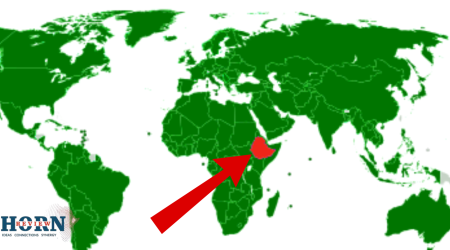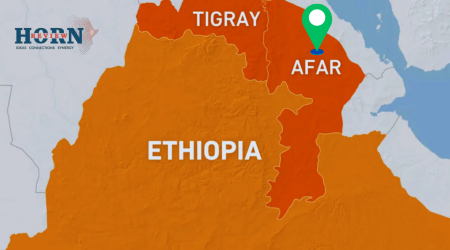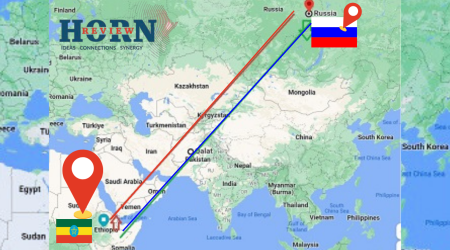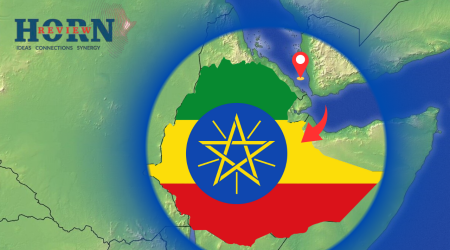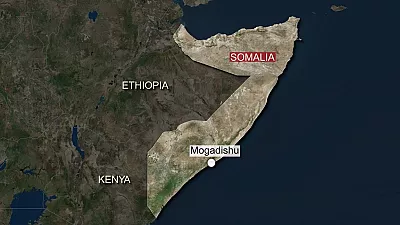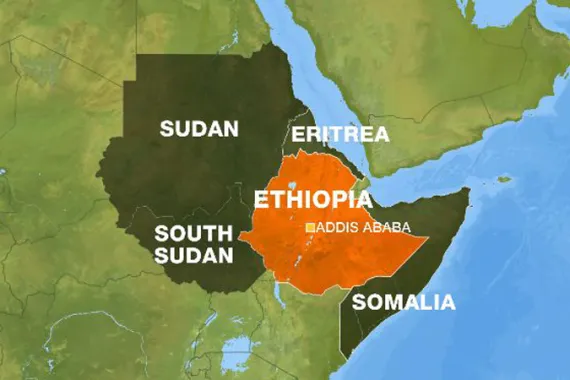
7
Jul
Predictability or Confidentiality: Which Way for Ethiopia’s Foreign Policy?
Ethiopia’s foreign policy can be said to be guided by the principles of predictability and confidentiality, especially in the pursuit of its major policy pillars: economic development, regional integration, and peace and security. A close observer of Ethiopia’s foreign affairs will recognize its commitment to a non-interference, non-alignment, and pragmatic foreign policy -:a framework that has long served as a consistent and actionable guide. But in today’s increasingly complex and rapidly shifting geopolitical landscape, an essential question arises:
Is this approach sufficient to fulfill Ethiopia’s strategic objectives?
Unlike developed nations, many African states -:and particularly those in the Horn of Africa -:are not in a position to autonomously decide their foreign policy direction or negotiate bilateral agreements without significant influence from external powers. Ethiopia, though often seen as a regional powerhouse, is not exempt from this reality. Its fate is intricately interwoven with the fortunes and instabilities of neighboring countries. Colonial-era borders, persistent conflicts, large-scale migrations, terrorism, climate change, and other cross-border challenges mean that the region remains among the most complex in the world.
Given these intertwined dynamics, the Horn of Africa is a uniquely challenging space in which to pursue national objectives. It is not only the physical geography that makes this region strategic, but the political geography -:its role as a crossroads of foreign interests and its internal fragmentation. As a result, Ethiopia’s foreign policy must be distinctively calibrated to address these overlapping layers of pressure and potential.
This brings us to a deeper inquiry: How specifically does Ethiopia attempt to achieve its foreign policy goals?
Countries that openly share their foreign policy strategies with the global community tend to recognize the value of predictability -:especially in establishing stable political partnerships and attracting long-term economic cooperation. However, confidentiality is also indispensable in diplomacy, especially when dealing with sensitive security matters or fast-moving geopolitical crises. Both principles come with trade-offs.
In Ethiopia’s case, it seems increasingly necessary to adopt a more predictable foreign policy -:especially in the realms of economic cooperation and regional integration -:where transparency helps attract investment, encourage partnerships, and promote long-term confidence. Investors and allies are more likely to engage when they clearly understand a country’s legal, political, and economic direction. Predictability in these areas fosters stability.
But this openness also creates risks. Adversaries may exploit the very predictability that allies rely on. Ethiopia’s long-standing policy of non-interference in other nations’ internal affairs -:one of its most consistent and visible principles -:has, in some cases, been weaponized by rival states. Egypt, for instance, stands out as a prominent actor that has repeatedly taken advantage of this Ethiopian restraint.
From the early days of the EPLF and TPLF liberation movements in the 1970s, Egypt provided ideological, logistical, and material support to anti-Ethiopian forces. Such actions reveal a stark asymmetry: while Ethiopia avoids intervening in other countries’ internal affairs, Egypt has historically done the opposite. And yet, despite these provocations, it remains almost unthinkable, culturally and politically, for Ethiopian policymakers to consider similar countermeasures against Egypt. This asymmetry begs the question: Should Ethiopia’s commitment to non-interference be applied absolutely, even when faced with persistent external subversion?
Another pillar of Ethiopia’s foreign policy -:non-alignment combined with a pragmatic approach -:has also come under increasing scrutiny. At face value, it appears to be the only viable strategy, especially for a country striving to maintain neutrality and economic openness in a polarized international system. However, the costs of this stance may now be outweighing the benefits.
The Foreign Ministry may need to consider revisiting this approach by crafting a more structured, long-term foreign policy vision that clearly communicates Ethiopia’s position to both friends and foes. Such a doctrine should articulate the foundational principles not just of Ethiopia’s diplomatic strategy, but of its broader economic vision, civil society aspirations, and political values.
This will necessarily involve taking clear positions on a range of global and regional issues -:the economic rivalry between the U.S. and China, the Israel-Iran war, the Abraham Accords, the evolving nature of neo-colonialism, and the role of international and African organizations. Remaining silent or ambiguous on such major developments may lead partners to view Ethiopia as unpredictable or noncommittal, undermining confidence and cooperation.
Yet when it comes to peace and security, the value of confidentiality is undeniable. Military capabilities and strategic defense policies must not be exposed or signaled in advance. In this domain, predictability is a liability. An effective national defense must rely on the element of surprise -:both as deterrence and as a mechanism of response.
The world learned this lesson once again from the October 7 attack on Israel, which radically altered the way countries think about military preparedness. The takeaway was not only about Israel’s intelligence gaps, but also about the broader strategic need for asymmetrical defense capabilities. Ethiopia must heed this lesson by investing in a robust defense posture that includes technological, psychological, and logistical strength.
The Foreign Ministry, in coordination with national defense and intelligence agencies, should closely monitor developments in the Horn of Africa and beyond, identifying risks before they manifest.
To conclude, predictability in Ethiopia’s foreign policy is advantageous in the spheres of economic cooperation and regional integration, where transparency and openness foster growth and mutual trust. However, confidentiality remains essential in national security, where strategic ambiguity is key to both defense and deterrence.
Beyond these principles, Ethiopia needs new conceptual tools to defend its national interests -:especially in the face of foreign interference -:and to clearly communicate its international posture. Taking clear, confident positions on major issues will not only protect Ethiopia’s sovereignty but also secure more meaningful partnerships. As the global and regional environment becomes increasingly fluid, Ethiopia’s foreign policy must evolve -:not by abandoning its values, but by adapting its strategies to a world that rewards clarity, readiness, and resilience.
By Markos Haile Feseha,Researcher, Horn Review

